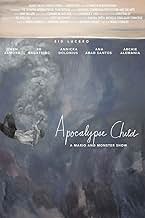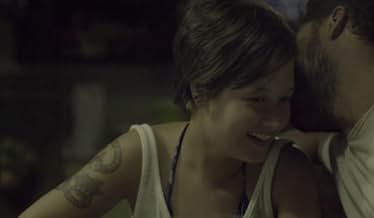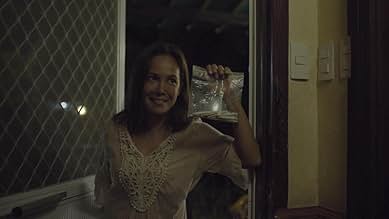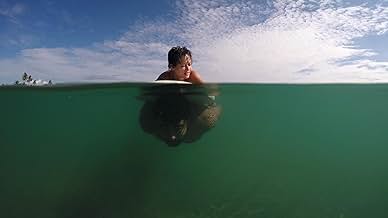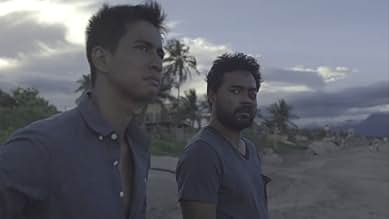Füge eine Handlung in deiner Sprache hinzuThe film is set in surfing town of Baler where Ford who is wasting his youth away. Named after Francis Ford Coppola. As another surfing season is ending, he is forced to confront his past, i... Alles lesenThe film is set in surfing town of Baler where Ford who is wasting his youth away. Named after Francis Ford Coppola. As another surfing season is ending, he is forced to confront his past, including the myths and myths about his life.The film is set in surfing town of Baler where Ford who is wasting his youth away. Named after Francis Ford Coppola. As another surfing season is ending, he is forced to confront his past, including the myths and myths about his life.
- Auszeichnungen
- 9 Gewinne & 19 Nominierungen insgesamt
Handlung
WUSSTEST DU SCHON:
- VerbindungenReferences Apocalypse Now (1979)
Ausgewählte Rezension
Mario Cornejo's Apocalypse Child is one of the finalists of the Qcinema 2015 International Film Festival Competition. It won several awards such as the grand prize for the Best Picture and I can certainly see why. It is simply astonishing in how viciously calm it is. The film takes place on the surfing town of Baler where Ford (played by Sid Lucero) has lived all his life with the belief that he is the son of a famous Hollywood director, Francis Ford Coppola. Once Ford's childhood friend Rich (RK Bagatsing) goes back to town to take his father's place in politics, Ford starts to question his heritage, causing all sorts of personal oppression as the story goes on.
A beautiful aspect about the film is how mature it is in its approach to drama. The characters and their manner of acting are all very subtle. They give hints here and there. Apocalypse Child, exploring the complexity of difficult truths and pain, contains multitudes of emotions in such abundance. The great thing about the acting is how the characters don't break out in an Oscar pleading way every so often. There is a climax, but the film does not render its emotions meaningless through wasted tears. One misconception about drama shown in a lot of films today is how the screenwriter mistakes crying for genuine emotion. Yes, tears can be an effective tool in a storyteller's repertoire because they can heighten a moment or a certain importance in a scene, but the thing is, tears have to be earned. The characters have to build up to them. This is what Apocalypse Child does so beautifully. The movie does not show characters crying out painfully in every scene. The acting is very subdued. The performances of each character do not tell the audience how they should feel. It is up to the viewer to read between the lines so he/she can insert true emotion whenever a character is silent or whenever there is a subtle body movement, whether it be through a quick gesture or a facial expression. This is a film where the past bears the force of a tsunami, where the truth is lurking behind the most innocent of faces, threatening to destroy the personal lives of many. These characters, these surfers of Baler, are forced to surf with the waves of pain and torment. They are forced to surf in their tortured past where all the mythologies of the town have been made to cover up the truth so heartbreaking to many.
The cinematography is exquisite. Although the film had a low budget, the way the camera matches the character's actions makes us feel what they are feeling. The film also did a good job of capturing the spirit of Baler, a small town idyllic in its culture. The surfing scenes are done well, the burbling of water and the gliding of waves bringing so much essence in the pleasures of a beach-bound lifestyle. Young Again, a song written by Armi Millare for the film, perfectly depicts the pain faced by the characters who are oppressed by their personal histories and backstories. This isn't a blockbuster type of film, there is no CGI used. Apocalypse Child is deliriously stunning through its simple camera movements and its editing of story lines to tie the characters in a tightly- knit family drama.
Apocalypse Child is easily one of the best Filipino films I have ever seen. It arrived quietly into cinemas without much fanfare. In fact, I was the only person inside the cinema when I watched it. To me, the film is truly remarkable. It is a rare motion picture that withdraws from the demands of traditional storytelling to dwell on the moods and affections of a whole town that just seems to want to gloss over all the pain that's just underneath the sun- kissed surface of their idyllic beach lives. It can be appreciated on all levels as it contains many themes that relate with love, family, and the cultural tradition of one's town. It really deserves a much larger audience that it has gotten throughout the limited screenings it had this year. Apocalypse Child is profound and momentous.
A beautiful aspect about the film is how mature it is in its approach to drama. The characters and their manner of acting are all very subtle. They give hints here and there. Apocalypse Child, exploring the complexity of difficult truths and pain, contains multitudes of emotions in such abundance. The great thing about the acting is how the characters don't break out in an Oscar pleading way every so often. There is a climax, but the film does not render its emotions meaningless through wasted tears. One misconception about drama shown in a lot of films today is how the screenwriter mistakes crying for genuine emotion. Yes, tears can be an effective tool in a storyteller's repertoire because they can heighten a moment or a certain importance in a scene, but the thing is, tears have to be earned. The characters have to build up to them. This is what Apocalypse Child does so beautifully. The movie does not show characters crying out painfully in every scene. The acting is very subdued. The performances of each character do not tell the audience how they should feel. It is up to the viewer to read between the lines so he/she can insert true emotion whenever a character is silent or whenever there is a subtle body movement, whether it be through a quick gesture or a facial expression. This is a film where the past bears the force of a tsunami, where the truth is lurking behind the most innocent of faces, threatening to destroy the personal lives of many. These characters, these surfers of Baler, are forced to surf with the waves of pain and torment. They are forced to surf in their tortured past where all the mythologies of the town have been made to cover up the truth so heartbreaking to many.
The cinematography is exquisite. Although the film had a low budget, the way the camera matches the character's actions makes us feel what they are feeling. The film also did a good job of capturing the spirit of Baler, a small town idyllic in its culture. The surfing scenes are done well, the burbling of water and the gliding of waves bringing so much essence in the pleasures of a beach-bound lifestyle. Young Again, a song written by Armi Millare for the film, perfectly depicts the pain faced by the characters who are oppressed by their personal histories and backstories. This isn't a blockbuster type of film, there is no CGI used. Apocalypse Child is deliriously stunning through its simple camera movements and its editing of story lines to tie the characters in a tightly- knit family drama.
Apocalypse Child is easily one of the best Filipino films I have ever seen. It arrived quietly into cinemas without much fanfare. In fact, I was the only person inside the cinema when I watched it. To me, the film is truly remarkable. It is a rare motion picture that withdraws from the demands of traditional storytelling to dwell on the moods and affections of a whole town that just seems to want to gloss over all the pain that's just underneath the sun- kissed surface of their idyllic beach lives. It can be appreciated on all levels as it contains many themes that relate with love, family, and the cultural tradition of one's town. It really deserves a much larger audience that it has gotten throughout the limited screenings it had this year. Apocalypse Child is profound and momentous.
- robbieclaravall
- 12. Dez. 2016
- Permalink
Top-Auswahl
Melde dich zum Bewerten an und greife auf die Watchlist für personalisierte Empfehlungen zu.
Details
- Erscheinungsdatum
- Herkunftsland
- Offizielle Standorte
- Sprachen
- Auch bekannt als
- Dziecko apokalipsy
- Drehorte
- Produktionsfirmen
- Weitere beteiligte Unternehmen bei IMDbPro anzeigen
- Laufzeit1 Stunde 35 Minuten
- Farbe
Zu dieser Seite beitragen
Bearbeitung vorschlagen oder fehlenden Inhalt hinzufügen

Oberste Lücke
By what name was Apocalypse Child (2015) officially released in Canada in English?
Antwort

